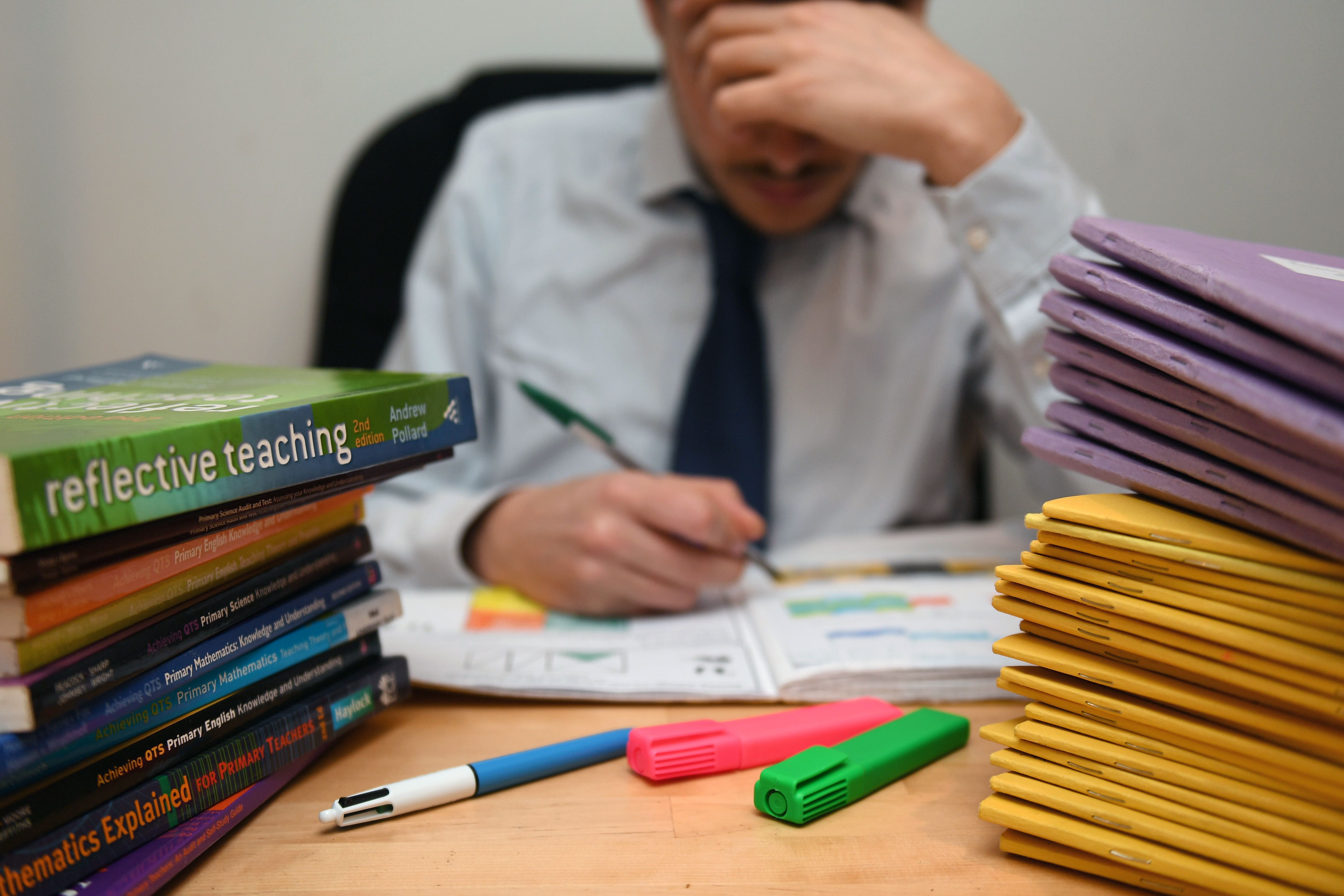The head of the UK’s largest education union has called for a radical shift in teaching practices, suggesting all full-time teachers should be permitted to work one day a week from home.
Daniel Kebede, general secretary of the National Education Union (NEU), told the Sunday Times that such flexible working patterns are crucial to tackling the ongoing recruitment and retention crisis plaguing the profession.
His proposals include a four-day in-school week, with the fifth day dedicated to remote work, alongside broader flexibility such as staggered start and finish times.
This call comes as teachers grapple with demanding schedules.
While currently allocated 10 per cent of their hours for planning, preparation, and assessment (PPA), this time often proves insufficient. Studies indicate many educators are forced to work unpaid during evenings and weekends to complete their duties.
Official figures highlight the disparity, revealing full-time teachers average 52 hours a week during term-time, significantly more than the 36-hour average for other full-time workers.
The Department for Education (DfE) also noted that school leaders face an even heavier burden, working nearly 57 hours weekly.

Mr Kebede called on the Government to double PPA time to 20 per cent and told the Times this would “then allow teachers to do four days (at school) and one day planning, which would be at home.
“Staggered starts and finishes and remote planning would make a real big difference. Does a physics teacher need to be in at 8am in the morning?”
The head of the union, which has more than 500,000 members, added: “Timetabling can allow for staggered starts and you also just need the Government and employers to trust that teachers are doing their work as necessary”.
A poll published in April, of more than 14,100 NEU teacher members in state schools in England, suggested more than half (56 per cent) said the rate of staff leaving their workplace has got worse in the past year.
Teachers said it is commonplace for them to work evenings (62 per cent), weekends (55 per cent), and more than a third (36 per cent) said they frequently cancel plans in order to get on top of their workload.
The poll, carried out between January 28 and February 9, suggested that nearly a third (31 per cent) of teachers are “always” dealing with work during the school holidays, with a further 60 per cent “often” or “sometimes” doing so.
Just 9 per cent said they have a complete break.

Mr Kebede said in a statement: “Teachers already work what is effectively a seven-day week, and this is by the Department for Education’s own measure.
“Full-time teachers work on average 51 hours per week, and school leaders 57 hours per week. It is no surprise that we are in a recruitment and retention crisis.”
A total of 9.5 per cent of fully qualified teachers left the profession in the UK in 2022 to 2023, the Organisation for Economic Co-Operation and Development (OECD) found in analysis published on Tuesday.
More than 80 per cent of them resigned rather than retired between 2022 and 2023 in the UK, it said, while France and Ireland recorded fewer than 50 per cent of departures as resignations.
Lithuania, Denmark and Estonia were the only countries of the 14 studied that had a higher proportion of resignations than the UK.
On average, around half (51 per cent) of fully qualified teachers who left the profession resigned in the OECD pool of 14 countries.
Mr Kebede added: “We want to work with Government to find solutions that will help address unsustainable workload levels and stop talented people from leaving teaching.
“It means making sure teachers are spending time on the activities that actually help students learn rather than on tick boxes and bureaucracy.
“It also means taking on the woolly language in contracts, to signal to every employer that reasonable working hours must be achieved so staff do not burn out.”

He added: “The reason so many teachers work extraordinarily long hours is to achieve all the tasks, planning and marking they need to get done. Just because a teacher is not in front of a classroom teaching children does not mean they are not hard at work. This is a myth that needs exploding.”
A DfE spokesperson said: “This Government is already delivering on our pledge to recruit and retain 6,500 more talented teachers with 2,300 more secondary and special school teachers in classrooms this year, as well as 1,300 fewer teachers leaving the profession – one of the lowest leave rates since 2010.
“Since day one, the Education Secretary has worked to reset the relationship with the education sector, announcing pay awards of almost 10 per cent over two years whilst tackling high workload and poor wellbeing.
“We are committed to working with teachers as partners in the push for better, driving high and rising standards through our Plan for Change to enable every child to achieve and thrive.”
Wetherspoons to slash prices for one day this week over tax ‘disparity’
MPs urge maximum pressure on US over tariffs ahead of Donald Trump’s state visit
Aldi boss warns higher business costs could ‘find their way’ into supermarkets
Sainsbury’s shares rise despite Argos sale talks collapsing
The surprising health benefit of a Mediterranean diet besides weight loss







